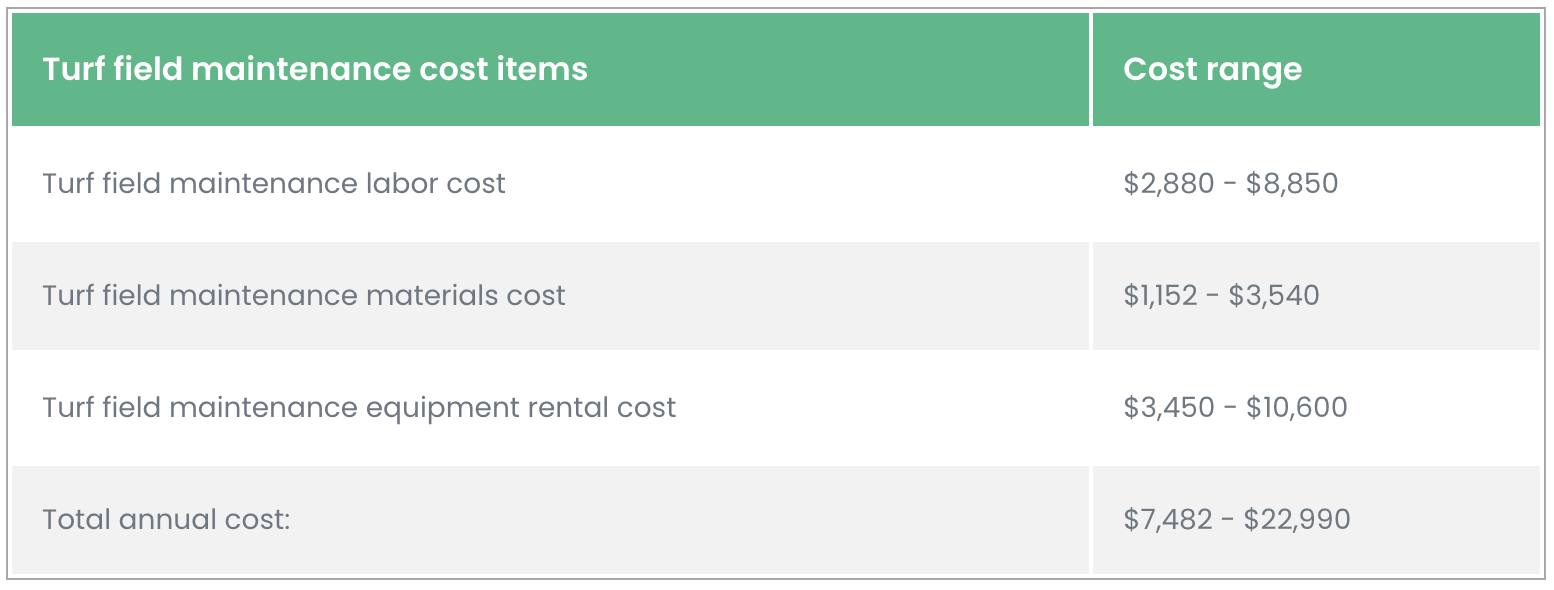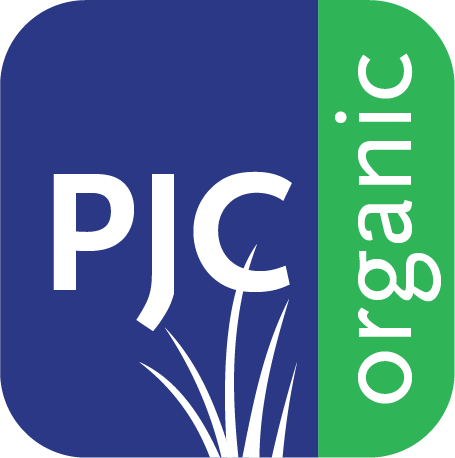It is a myth that synthetic fields require less maintenance, and therefore less money, than natural turfgrass. Here, we’ll look at the financial costs of artificial fields as it pertains to their upkeep and replacement. First, take a look at two blogs we published on safety concerns and the maintenance requirements of artificial turf:
“Safety Concerns Associated With Artificial Turf”—While it may look flashy and play fast, there are significant player safety concerns associated with artificial turf. Increased exposure to injury risk, chemicals, diseases, and heat pose legitimate concern. As such, it’s important to keep player safety concerns associated with artificial turf on the forefront of decision making. Read more→
“Synthetic Turf Fields Require Maintenance”—People often disregard the fact that synthetic turf fields require maintenance. While an artificial field doesn’t require regular mowing, irrigation and fertilization, there is still daily maintenance required when it’s overseen properly. In this blog, we cover the necessity for infill material additions, grooming, irrigation, debris removal, disinfecting, drag mats, sweeping, seam repair, snow and ice management, and testing requirements to ensure the safety of artificial turf. Read more→
Note: This article will use “artificial” and “synthetic” interchangeably to describe the man-made fibrous turf fields designed to look like and replace natural grass.
Annual Cost of Maintaining Synthetic Turf
According to Sports Venue Calculator, the annual cost of maintaining a synthetic field can range anywhere from $7,000-$23,000 annually. This cost is dependent on the size of the field, geography, type of turf, and availability of equipment. A turf field has regular maintenance performed by the grounds team, as well as specialized maintenance that requires outsourcing labor to specialists. Furthermore, find additional information on maintenance tasks in our blog “Synthetic Turf Fields Require Maintenance”.

Artificial Turf Damage and Replacement Costs
Even with proper maintenance, the most common damage done to synthetic turf includes: infill material contamination, weather, and uneven distribution of the load of the pitch (Artificial Turf Field Maintenance Costs and Guidelines). Additionally, keep in mind high traffic areas according to sports use — this is where damage most often occurs.
Most manufacturers guarantee 8-10 years of field life for artificial turf (Keystone Sports Construction). Field life is dependent on how well it is maintained, and how much use it gets. Although, we are aware of fields that have had to be replaced in as little as 6 years. One of the worst cases we heard of was a brand-new synthetic field that sustained $100,000 damages when fireworks were set off on the field—an act of vandalism not covered by warranty.
Budget figures for replacing a synthetic field range from $6.50 – $7.80 per SF for disposal and resurfacing of a synthetic field, or $374,400 – $449,280 for the typical football field.
| Budget | 6 Year Life | 8 Year Life | 10 Year Life |
| Annual Replacement Cost | $62,000 – $74,880 | $46,800 – $56,160 | $37,440 – $44,928 |
It’s critical that you create a maintenance budget with a professional turf field maintenance company prior to installing your field.
The Alternative: Natural Grass
Approximate product costs for a school we work with for the 2020 season was $49,076 based on treating, 659,998SF, this translates to product costs of $0.74 per SF. Using a typical football field example, annual maintenance materials costs would be $4,283.00, labor and equipment costs are extra.
Other Maintenance Costs
- Mowing
- Irrigation
- Aeration (cost of seed included in product costs)
Replacement Costs
A natural grass field built and maintained correctly; resurfacing may not need to take place within a 20-year period. If resurfacing is necessary, cost is roughly $0.24 per square foot or $13,824; plus, sod – $24,500 and labor. If necessary, annual replacement cost for our native soil field would be approximately $1,925 over a 20-year field life.
Big businesses, administrations, and municipalities must take into account the financial costs of artificial fields when looking to install these investments.
PJC works with landscapers, schools and municipalities to implement organic turf care seamlessly. We analyze soil tests, make product recommendations, and offer cultural practice guidelines based on your turf needs. Take the “But natural grass fields look crummy and have a whole slew pesticide needs” retort off the table. Contact us about our Support Services and see how you can have good looking, all-natural fields that are safe for players and the community.
